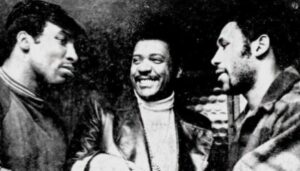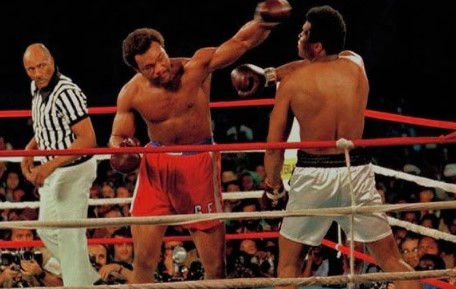In the dimly lit corners of boxing history, the 1970s are remembered as a golden era of heavyweight titans. Names like Muhammad Ali, George Foreman, and Joe Frazier echo through time, but beneath their brilliance lies a shadowed gallery of pugilists who fought valiantly yet faded from memory. These were the lost heavyweights—fighters who had the skills, the stories, and often, the tragedies that make boxing history so compelling.
Take, for instance, a man named Duane Bobick. Bobick was an American hope, a former Olympian who shared a ring with some of the most dangerous men in the sport. Bobick came into prominence with a stellar amateur record, but his professional career was marked by promise unfulfilled. On a chilly night in May 1977, Bobick faced Ken Norton in a bout that could have propelled him to stardom. It ended in just 58 seconds. That night defined his career—not his years of dominance, nor the 38 wins he amassed before that fateful fight. Instead, Bobick became a cautionary tale of what happens when raw power meets technical mastery.
Then there’s Jeff Merritt, better known by his evocative nickname, Candy Slim. Merritt was 6’5” of raw, knockout fury, a man who looked every inch the future champion. Trained by Angelo Dundee and at one time sparring with Muhammad Ali, he seemed destined for greatness. Merritt, however, was plagued by demons. His life spiraled into addiction, his once-formidable physique diminished, and his career collapsed into obscurity. One night in 1973, he obliterated Ernie Terrell in less than three minutes, only to disappear into the chaos of his personal life. His final recorded fight was in 1982, a faint echo of the fighter he had once been.


The Forgotten Titans of the 1970s: Tales of Triumph and Tragedy
But not all the lost heavyweights were defined by failure. Some, like Ron Lyle, defied odds that were stacked high against them. Lyle spent years behind bars for second-degree murder, finding boxing as a lifeline while incarcerated. He emerged as a fierce contender, standing toe-to-toe with legends like Foreman and Ali. His fight against Foreman in 1976 is the stuff of legend—an all-out slugfest that saw both men knocked down repeatedly before Lyle succumbed in the fifth round. Lyle, though not forgotten entirely, remains underappreciated, his toughness and resolve overshadowed by the brilliance of his contemporaries.
Oscar “Ringo” Bonavena, an Argentine powerhouse, brought flair and controversy to the ring. His career included epic clashes with Ali and Frazier, but his eccentric personality often stole the spotlight. Bonavena’s life outside the ring was as chaotic as his fights inside it. In 1976, he was tragically shot and killed, cutting short a life filled with drama and promise.
The 1970s heavyweights were more than just names and records—they were characters in a broader narrative of hope, ambition, and human frailty. Leroy Jones, for example, was a soft-spoken giant who worked his way up to a title shot against Larry Holmes in 1980. Jones was undefeated at the time, but his lack of top-tier competition caught up to him as Holmes dismantled him in eight rounds. After that, Jones vanished from the boxing spotlight, leaving behind whispers of what might have been.
Yet, not every story is one of despair. George Chuvalo, though not a headliner of the 1970s, epitomized resilience. The Canadian warrior never hit the canvas in 93 professional fights, even against the likes of Ali and Foreman. Chuvalo’s battles were as much with life’s hardships—losing several family members to addiction—as they were with the giants of his era.
The lost heavyweights of the 1970s remind us that boxing is as much about the fighters who rise and fall as it is about those who reach the summit. Their stories, while tinged with tragedy, resonate deeply. They are the ghosts of Madison Square Garden, the forgotten warriors of smoky arenas, and the enduring symbols of a sport where glory is fleeting but heart remains eternal.







